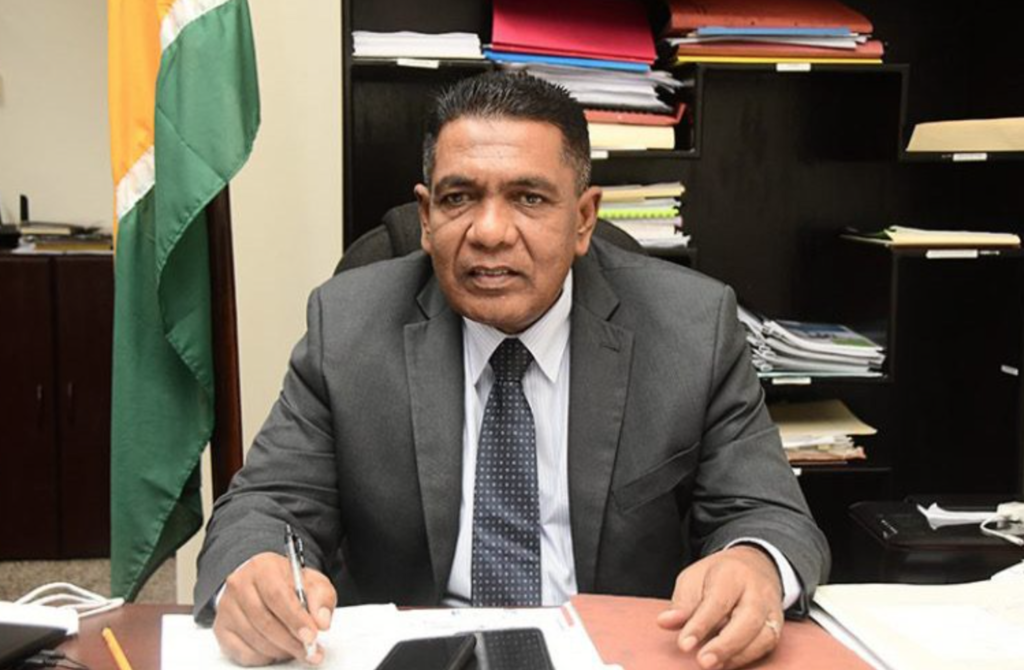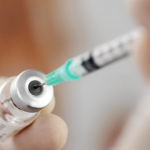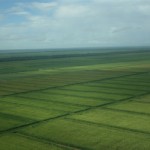
Faced with what appears to be a shortage of local chicken on the market, the Guyana Government has lifted the ban on poultry imports and has started the importation of chicken itself from Brazil to meet the local demand.
Local poultry producers have been dogged by a chicken virus that crippled the industry locally, resulting in a drop in local poultry production.
Speaking with News Source today, Minister of Agriculture, Zulfikar Mustapha explained that the move is intended to cushion the impact that the poultry virus – Inclusion Body Hepatitis (IPH) – has had on local production.
Through the Guyana Marketing Corporation (GMC), the Ministry of Agriculture is selling the imported bulk chicken to local poultry producers and farmers at a cost of $285 per pound.
“We started to bring in some because with the hepatitis that they had, they had some issues. So, the GMC is selling it back to the farmers, who normally sell those chickens, so that the effect would not change. For example, if you were a poultry farmer, and you had issues with the disease, and your production level drop, we will give you the chicken like about $285 a pound, and you can retail it back, so, the price will remain the same, and you as a poultry farmer will not feel effect that you are losing production,” the agriculture minister explained.
According to Minister Zulfikar, three to four containers of chicken arrived in the country from Brazil a few days ago, but he maintains that there is no chicken shortage.

Meanwhile, the Agriculture Ministry together with the Guyana Livestock and Development Agency (GLDA) met with Demerara Bank, and a number of small farmers earlier this week to iron out the criteria for loans needed to ramp up production in the poultry sector.
The Agriculture Minister told News Source that poultry farmers can now access loans between $500,000 and $1.5M without any collateral. However, certain criteria must be met.
At a symposium last Friday at the Arthur Chung Conference Centre (ACC), President Irfaan Ali disclosed that the Government completed negotiations with Demerara Bank to allow for poultry farmers to access low interest loans – a move that would see them moving back into production.
“We have arrived at a position of loans, $500,000 and less, for small farmers, they are willing to facilitate a 3.5%, 3.5% interest rate. Between $500,000 to a million-dollar, 4%…For those with a million dollar and less, they will look at using letter of assignment, that is if you’re doing contract farming for someone else, as part of the collateral basis to give you those loans,” President Ali told the hundreds of farmers present.
For loans between $1M and $5M, the interest rate has been set at 5.5%.
Further, to combat the spread of the deadly poultry virus, the Government has procured approximately $29M in vaccines for the distribution among small and medium scale farmers.
The move, President Ali said, will also bring down the cost of the chicks being sold to the farmers by approximately $6, per chick.
Minister Mustapha said the Government has also embarked on a number of other initiatives to bring down the cost of poultry production such as the corn and soya project.
“We are now looking at the breeder project, a private farmer has started that project but in this year’s budget in the Ministry of Agriculture, we have $50M that has been budgeted to start the breeder project, so, we can produce our own hatching eggs, so, we can bring down the cost of hatching eggs rather than importing it into the country, we can produce it right here in Guyana,” the Agriculture Minister explained.
Chief Executive Officer of the Guyana Livestock and Development Agency (GLDA), Dr Dwight Walrond had reported that the war in the Ukraine and Inclusion Body Hepatis (IPH) virus have negatively affected poultry production in Guyana as well as other parts of the world. But David Fernandes, who spoke on behalf of the Poultry Association, said smuggling is also a major issue.
“We have a major problem affecting…smuggling…The Government made the correct decision to import legally chicken at Christmas time but after Christmas, it continued, the smuggling, at a level that caused farmers, who generally don’t have storage facilities, who sell mainly live and fresh flock, they just didn’t have anywhere to put the chicken, they kept the chicken for a little while hoping for a different position the next day or the next week, and they had to dispose of them at very cheap prices,” Mr Fernandes explained.
While the Government is moving to address the current challenges fronting poultry farmers, President Ali said there is need for an integrated plan that addresses feed production, co-investment, value added products and cold storage among other critical areas. (Svetlana Marshall)



















You must be logged in to post a comment Login